When alumnus Ernest Kidake Anzeze departed Kenya in 2017 for Charles Sturt University in Australia, he carried more than just his belongings, he carried the hopes of an entire county of Turkana. A passionate advocate for agricultural transformation and a dedicated public servant, Ernest’s journey from Turkana to Australia and back is nothing short of inspirational.
Thanks to the Australia Awards Scholarship, Ernest earned a Master of Animal Science and returned to Kenya armed with cutting-edge knowledge, global insights, and a clear vision to uplift his community through livestock development. Today, he serves as Assistant Director of Livestock Production in the County Government of Turkana, where he leads innovative, evidence-based programs to combat poverty, food insecurity, and the impacts of climate change in one of Kenya’s most vulnerable regions.
From humble beginnings to international achievement
Ernest began his career as a livestock extension officer in Turkana, a vast and arid county in north-western Kenya bordering Ethiopia, South Sudan, and Uganda. Known for its frequent droughts and harsh climate, Turkana’s economy relies heavily on pastoralism. Despite limited resources, Ernest’s commitment to supporting rural communities was evident from the outset. Through his work, he helped improve herd health, strengthen ties with farmers, and increase confidence in local government services.
Through dedication, technical proficiency and a strong sense of purpose, Ernest progressively advanced within the livestock department. His promotions showcased his leadership abilities and expertise, culminating in a defining moment when he was awarded the Australia Awards Scholarship to study at Charles Sturt University in Wagga Wagga, New South Wales. Charles Sturt University provided him with high-quality education in Animal Science, with a strong focus on practical and industry-relevant training.
“I utilised my knowledge, skills and experience attained at Charles Sturt University in Australia to realise my dream, aiding in the promotion of food security and the improvement of livelihoods in my country, regionally and globally. The scholarship provided me with advanced skills and knowledge to improve livestock management and food security contributing to my country’s development by taking on leadership roles, implementing innovative research, and creating partnerships between research institutions and the private sector to address local challenge,” Ernest said.
Leadership roles at university
While studying in Australia, Ernest was elected Vice President of the International Students Club at Charles Sturt University. This leadership role helped him develop key skills in problem-solving, communication and long-term strategic thinking. It also strengthened his ability to lead with empathy and purpose, skills that would later define his approach to leadership back home.
Transforming Turkana through science and strategy
Armed with advanced training, Ernest returned to Kenya with a bold vision, to transform the country’s arid and semi-arid lands, 80 per cent of its territory, into productive, climate-resilient zones supported by livestock-based livelihoods. His plan centered on increasing production of quality livestock feeds, sustainable rangeland management, and climate-resilient farming systems. Ernest participated in the development of the Fodder Manual for Arid and Semi-Arid Areas and the Livestock Fodder and Pasture Strategy for the Frontier Counties of Kenya, documents that are now shaping national livestock policy.
Livestock breeding and multiplication centre
One of Ernest’s flagship projects is a livestock breed improvement and multiplication centre in Kerio Delta Ward, Turkana Central Sub-County. Near completion, the centre will improve the genetic stock of local livestock breeds to enhance resistance to drought and disease, boost productivity and increase meat and milk yields. It will also serve as a hub for staff and farmer training, extending the benefits of improved breeds across the region.
As part of his broader development work, Ernest has played an instrumental role in formulating key livestock development policies and projects that strengthen Turkana County’s agricultural framework. In response to the region’s recurring climate challenges, he has coordinated comprehensive drought-mitigation interventions, ensuring that pastoral communities are better prepared to manage feed shortages, safeguard their herds and sustain their livelihoods during prolonged dry seasons.
Strategic feed, fodder reserves, and modern livestock markets
Recognising the constant threat of drought, Ernest supported establishment of six strategic livestock feed reserves across Turkana. These reserves ensure adequate fodder supplies during dry seasons, significantly reducing livestock losses and protecting pastoralist incomes. Complementing this, he has championed pasture and fodder production programs. By training farmers and linking them to markets, Ernest has helped communities generate steady income through the sale of hay bales and pasture seeds while promoting sustainable grazing and land restoration.
Under Ernest’s leadership, Turkana County has constructed and upgraded 52 modern livestock sale yards and markets, providing pastoralists with structured, hygienic, and accessible trading platforms. The improved facilities have enhanced disease control, market transparency, and income security for thousands of livestock farmers.
Empowering women and youth
Inclusive growth is central to Ernest’s vision. Through poultry farming and beekeeping initiatives, he has empowered hundreds of women and youth to participate meaningfully in the agricultural economy. These ventures generate income, enhance food security, and build entrepreneurial capacity among historically marginalised groups. “These enterprises have changed lives,” Ernest reflects. “They have given women and youth a voice and a place in the agricultural economy.”
Building resilience through innovation
As the County Coordinator of the World Bank-funded livestock insurance program, De-risking, Inclusion and Value Enhancement for Pastoral Economies (DRIVE), Ernest has overseen the enrolment of over 16,000 farmers in livestock insurance. This safety net protects pastoralists from drought-induced losses that often lead to famine and displacement. Recruiting over 100 youth and women as insurance agents has created local jobs and improved financial literacy. In partnership with the DRIVE project, Ernest is advancing Kenya’s first Animal Identification and Traceability System (ANITRAC), a digital platform to track livestock from farm to market, ensuring food safety and expanding export opportunities.
Policy leadership, national impact, global collaboration, and local change
Beyond community projects, Ernest plays an active role in shaping Kenya’s livestock policies. He helped draft the Turkana County Animal Health Policy and Bill, County Livestock Policy and Bill, and the County Livestock Sale Yards Bill, all of which enhance governance and regulatory frameworks for sustainable livestock management. Nationally, his contributions to the Fodder Manual for Arid and Semi-Arid Areas and the Livestock Fodder and Pasture Strategy have provided critical guidance for policymakers, development partners, and farmers alike.
Ernest’s work extends beyond Turkana. He has contributed to the Kalobeyei Integrated Socio-Economic Development Plan (KISEDP), a 15-year United Nations-led initiative aimed at building resilience among refugees and host communities in Kenya. His involvement bridges humanitarian aid with sustainable livestock-based development, offering a model for similar regions across Africa. He collaborates with leading international organisations including the United Nations World Food Programme, Food and Agriculture Organization, USAID, GIZ, World Bank and African Development Bank, helping Turkana integrate global best practices into local development initiatives.
Ernest remains an active member of key professional organisations, including the Australian Association of Animal Sciences (AAAS), the Animal Production Society of Kenya (APSK), and the Grassland and Rangeland Society of Kenya (GRASK). These affiliations reflected his passion for agricultural science and his drive to contribute on both local and international levels.
A lasting legacy and training the next generation
Education and training form a cornerstone of Ernest’s impact. Since returning from Australia, he has trained more than 10,000 pastoralists in livestock husbandry, rangeland management, and climate-smart production. Drawing directly from his master’s program and international experience, he combines theory with hands-on demonstrations and peer-to-peer learning. His efforts are transforming local mindsets, pastoralists who once viewed drought as inevitable are now adopting grazing rotations, producing fodder, and engaging with formal markets.
“This isn’t just about animals,” Ernest says. “It’s about people, livelihoods and dignity.”
Ernest’s story is a powerful testament to how education can drive sustainable change. His achievements demonstrate the transformative ripple effect of the Australia Awards Scholarship, from the classrooms of Charles Sturt University to the communities of Turkana. By blending traditional knowledge with scientific expertise and inclusive leadership, Ernest has created a blueprint for resilience and prosperity in Kenya’s arid lands, one that continues to inspire future generations of Australia Awards alumni across Africa.

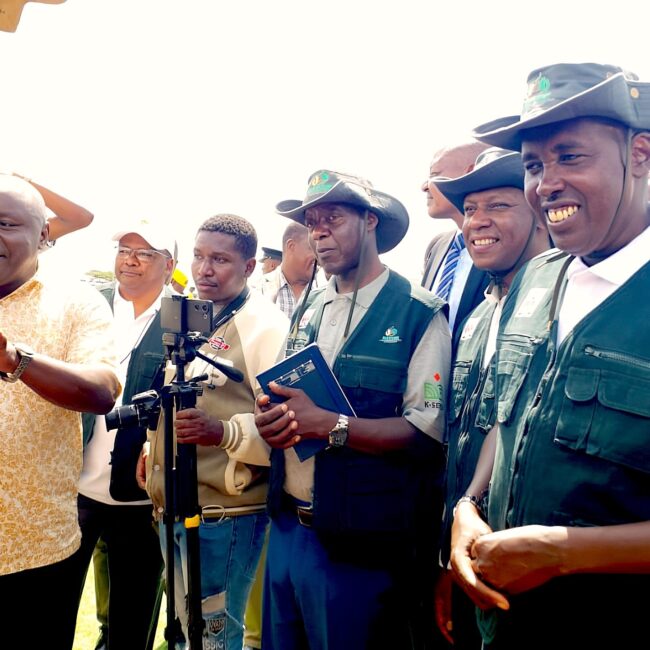
Ernest during the Galla goats distribution to farmers for breed improvement.
Ernest supporting Beekeeping as a livelihood, boosting income, and creating jobs for youth and women.
Ernest showcasing livestock production technologies to Kenyan President H.E Dr. William Ruto (wearing traditional attire) during a cultural and tourism event in Turkana County.
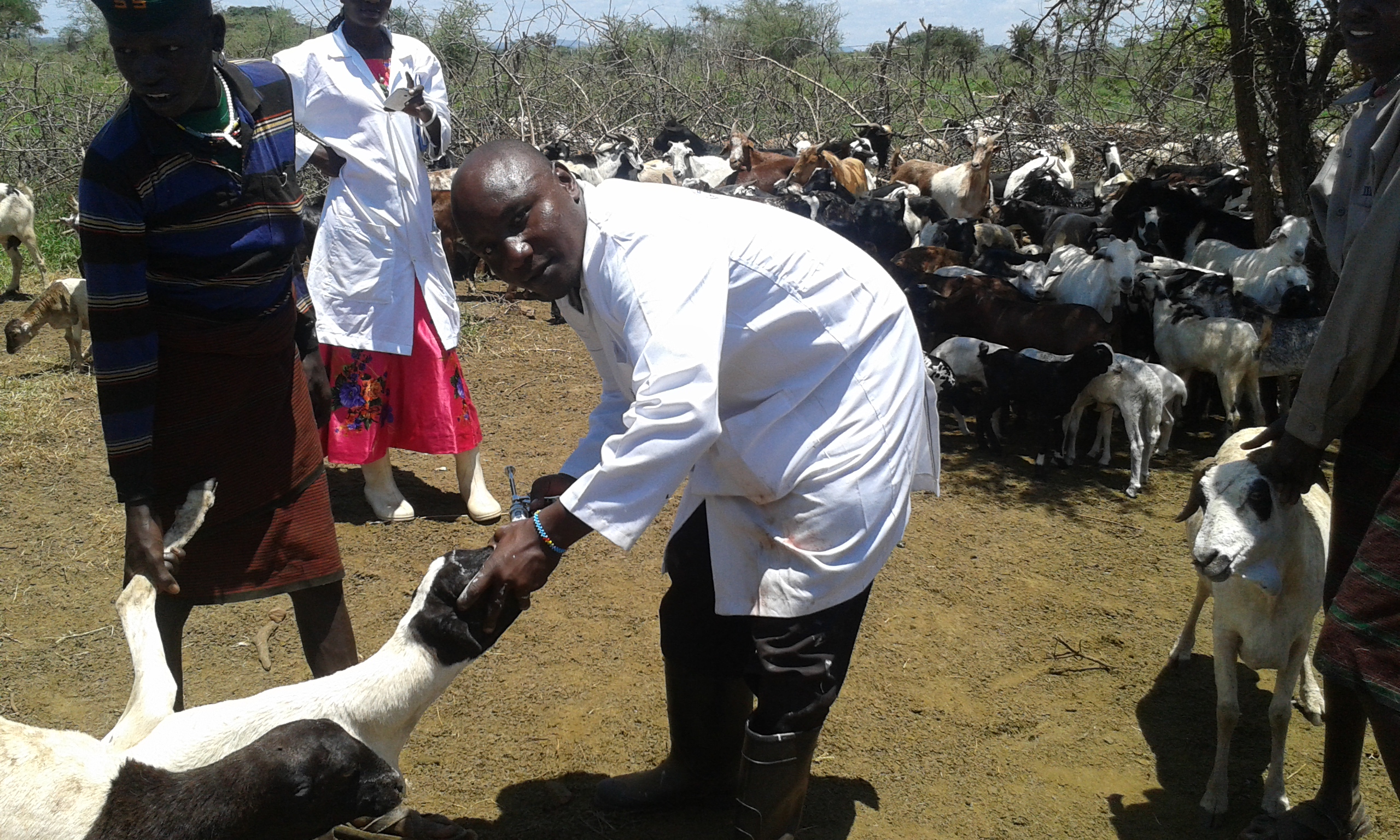


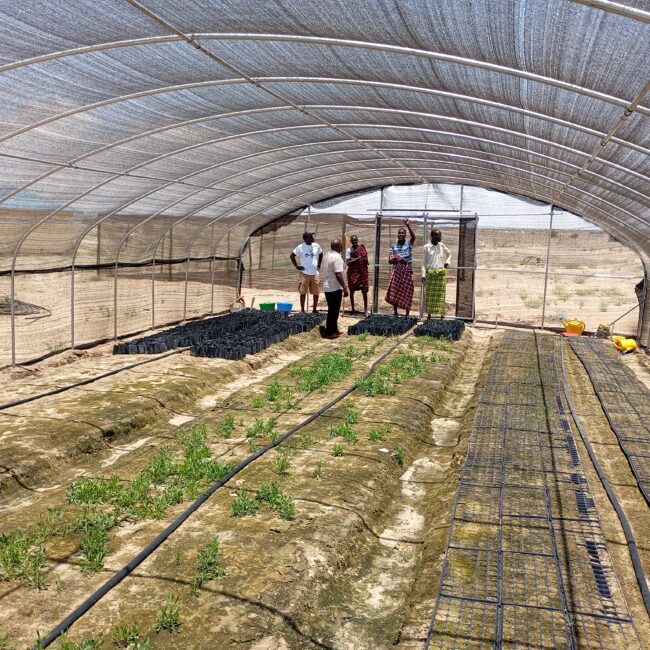
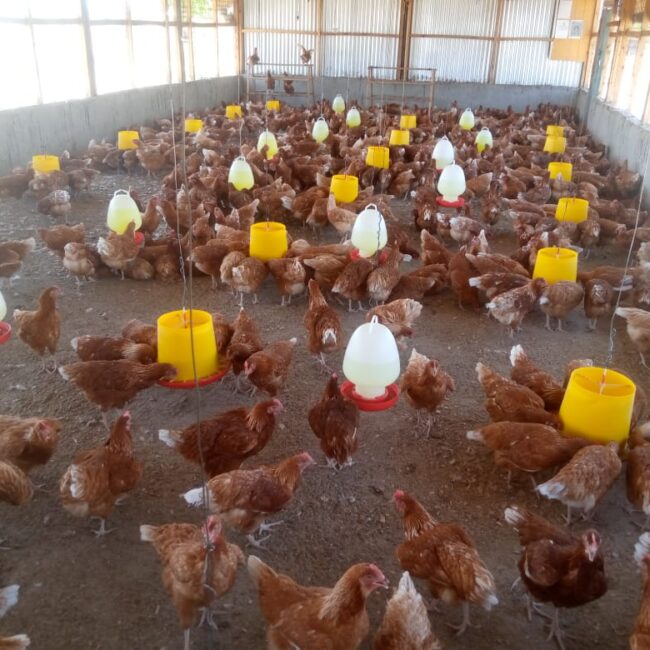
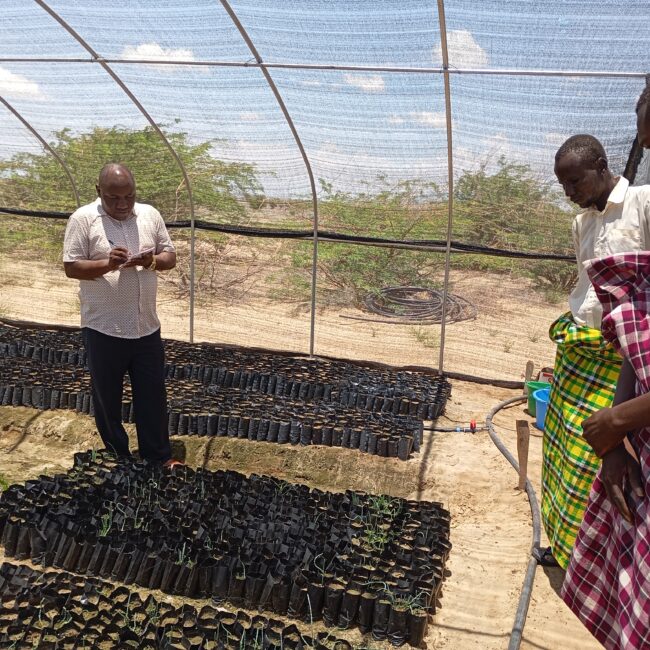
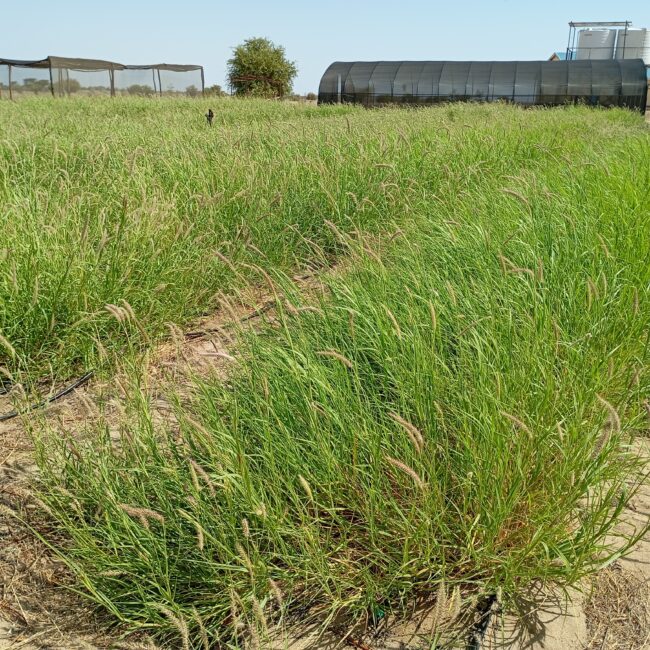
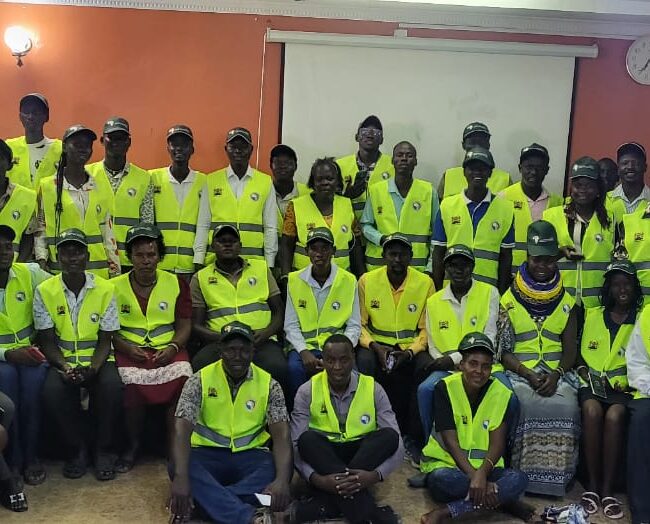
Connect with us
Any questions?
If you cannot find the answer on our FAQs page, feel free to get in touch by emailing .